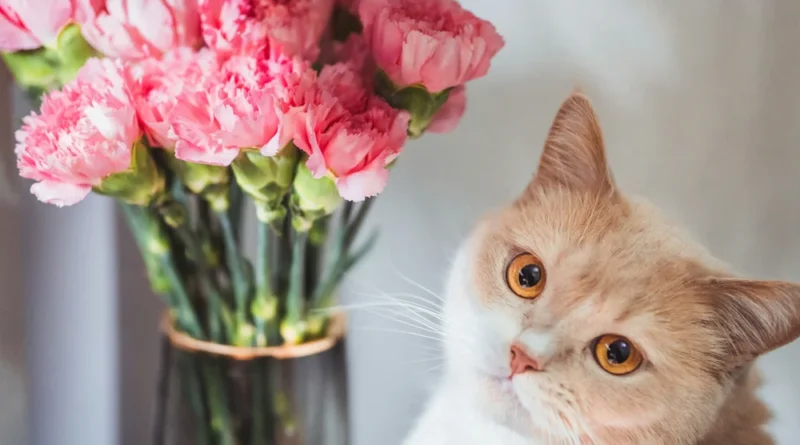Are Carnations Toxic to Cats
Are Carnations Toxic to Cats:
Understanding the Risks
Carnations are popular for their vibrant colors and long-lasting blooms, making them a common choice for home decoration. But if you’re a cat owner like me, you might be wondering if these beautiful flowers are safe for your furry friend. Unfortunately, while they may not be the most dangerous plant out there, carnations can still pose a risk to cats.
Carnations contain mild toxins that can cause discomfort if your cat decides to munch on them. Cats are naturally curious and love to explore their environment, often using their mouths. The toxins incarnations are found in all parts of the plant—stems, leaves, and flowers. So, it’s important to know what to watch for if your cat gets too close.
Symptoms of Carnation Poisoning in Cats
If your cat has nibbled on a carnation, you’ll want to keep an eye out for a few warning signs. The severity of the symptoms can vary based on how much your cat has ingested, but here are some common ones:
- Vomiting: This is often the first sign that something might be wrong. If your cat throws up shortly after sampling a carnation, it’s a sign to take seriously.
- Diarrhea: An upset stomach can lead to diarrhea, which can make your cat feel even worse.
- Drooling: If your cat starts drooling more than usual, it could be a reaction to the irritation caused by the plant.
- Loss of Appetite: If your cat suddenly doesn’t seem interested in eating, especially after coming into contact with a carnation, it could be a red flag.
- Lethargy: A cat that usually loves to play but suddenly seems tired or less active might be dealing with the effects of the plant.
- Skin Irritation: In some cases, your cat might experience irritation around their mouth or wherever they’ve touched the plant.
If you notice any of these symptoms, it’s important to take action quickly. While carnation poisoning is typically mild, it can still make your cat uncomfortable and should be addressed.
Wanna Know: How to Make a Cat Eat
What to Do if Your Cat Eats a Carnation
If you suspect your cat has eaten part of a carnation, here’s what you should do:
- Remove the Plant: The first step is to make sure your cat can’t reach the plant anymore. Either move it out of their reach or remove it from your home entirely.
- Monitor Your Cat: Keep a close eye on your cat for any signs of illness, such as vomiting, diarrhea, or changes in their energy levels.
- Contact Your Veterinarian: It’s always a good idea to call your vet if you think your cat has ingested something toxic. They can offer advice on the next steps, whether that’s bringing your cat in for a check-up or monitoring them at home.
- Follow Your Vet’s Instructions: Your vet may suggest specific treatments, such as providing fluids, inducing vomiting, or giving medication to ease symptoms. Be sure to follow their guidance carefully.
- Avoid Home Remedies: Unless directed by your vet, avoid using home remedies or over-the-counter treatments, as these can sometimes do more harm than good.
Most cats recover quickly with prompt care, but the best approach is always prevention. If you love having plants around, consider opting for pet-friendly varieties that won’t pose a risk to your cat.
By staying informed and being proactive, you can help ensure your cat stays safe and healthy, even in a home full of beautiful plants.

